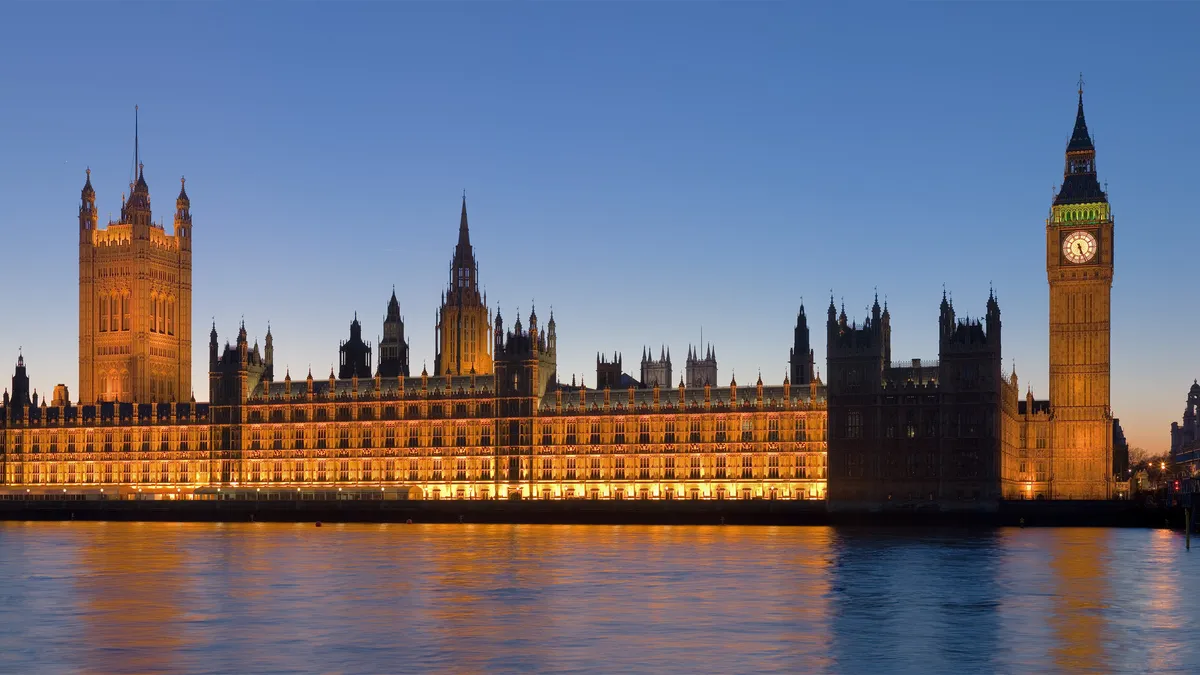UPDATE: Oct. 28, 2019: The European Union announced today it will accept the UK's request for a Brexit delay until January 31, 2020. The agreement must still be formalized in writing. Prime Minister Boris Johnson released a statement calling for a general election on Dec. 12, a move that requires parliament's approval, in the hopes of shifting the current gridlock in his favor.
Dive Brief:
- The U.K. parliament voted 322-306 to delay consideration of Prime Minister Boris Johnson's Brexit deal in a rare weekend vote on Saturday. The move forced Johnson to ask the European Union for an extension until Jan. 31, 2020. The EU has not yet announced whether the extension will be granted.
- Members of Parliament declined to consider Johnson's proposal in favor of waiting until they can formally vote on whether the European Union Withdrawal Agreement Bill should become law. Johnson had hoped for a second vote to take place Monday afternoon, but Speaker John Bercow denied the vote saying it was too similar to what was voted on Saturday.
- Johnson said he is committed to delivering Brexit by the original Oct. 31 deadline, writing in a letter to the President of the European Council, Donald Tusk, that Downing Street did not want to delay Brexit and that it would have a "corrosive impact" on the country.
Dive Insight:
If the EU Withdrawal Agreement Bill passes Monday, it could be a win for Johnson as he attempts to hold Parliament to the Oct. 31 deadline to exit from the EU.
That said, the government is simultaneously putting preparations in place to implement "Operation Yellowhammer," the U.K.'s no-deal Brexit contingency plan. The operation involves working with local governments, impacted industries and key road and port infrastructures to mitigate the impact of traffic delays and shortages.
Johnson has reiterated his belief the U.K. would fare just fine if it crashed out of the EU without a deal; however Members of Parliament and the international business community have expressed concern about the immediate impact on the country's ability to get key food and medical supplies, in addition to an expected slowdown at key ports and customs checkpoints.
To learn more about how a no-deal Brexit could affect global supply chains, we've compiled the following key insights from our Brexit coverage below.













